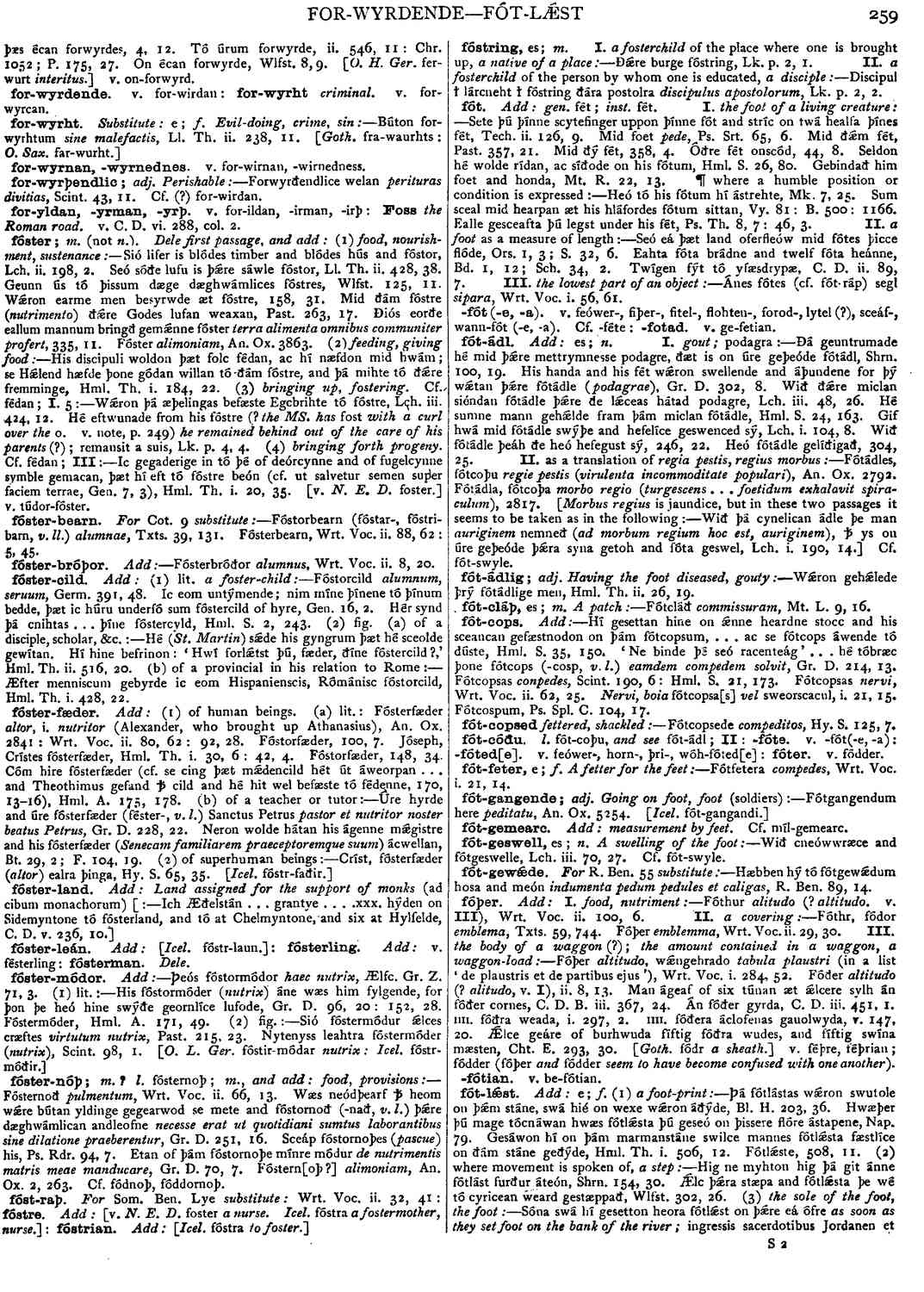fóster
- noun [ masculineneuter ]
-
Sió lifer is blódes timber and blódes hús and fóstor,
- Lch. ii. 198, 2.
-
Seó sóðe lufu is þǽre sáwle fóstor,
- Ll. Th. ii. 428, 38.
-
Geunn ús tó þissum dæge dæghwámlices fóstres,
- Wlfst. 125, 11.
-
Wǽron earme men besyrwde æt fóstre,
- 158, 31.
-
Mid ðám fóstre (
nutrimento
) ðǽre Godes lufan weaxan,- Past. 263, 17.
-
Ðiós eorðe eallum mannum bringð gemǽnne fóster
terra alimenta omnibus communiter profert,
- 335, 11.
-
Fóster
alimoniam,
- An. Ox. 3863.
-
His discipuli woldon þæt folc fédan, ac hí næfdon mid hwám; se Hǽlend hæfde þone gódan willan tó ðám fóstre, and þá mihte tó ðǽre fremminge,
- Hml. Th. i. 184, 22.
-
Wǽron þá æþelingas befæste Egcbrihte tó fóstre,
- Lch. iii. 424, 12.
-
Hé eftwunade from his fóstre (? the MS. has fost with a curl over the o. v. note, p. 249)
he remained behind out of the care of his parents
(?); remansit a suis,- Lk. p. 4, 4.
-
Ic gegaderige in tó þé of deórcynne and of fugelcynne symble gemacan, þæt hí eft tó fóstre beón (cf. ut salvetur semen super faciem terrae,
- Gen. 7, 3), Hml. Th. i. 20, 35.
Bosworth, Joseph. “fóster.” In An Anglo-Saxon Dictionary Online, edited by Thomas Northcote Toller, Christ Sean, and Ondřej Tichy. Prague: Faculty of Arts, Charles University, 2014. https://bosworthtoller.com/46185.
Checked: 0